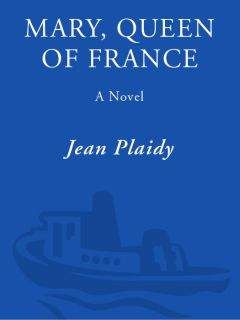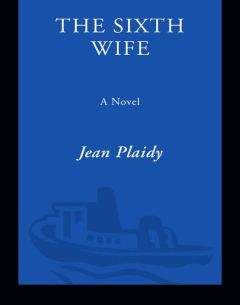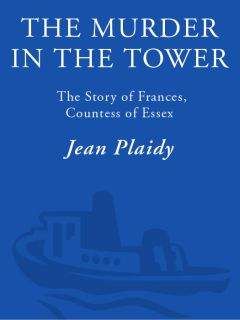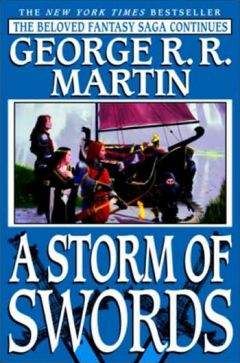Elizabeth knew that he was contemplating the Infanta’s dowry and congratulating himself that there could not have been a more advantageous match than this one with Spain.
Henry turned to his Queen. “I must be watchful of Ferdinand. I am not sure that he is to be trusted. He will try to arrange that all the advantages are on his side.”
“You too are shrewd,” his wife reminded him.
Henry nodded. “It has been very necessary for me to foster shrewdness. I shall be very pleased when the dowry is in my possession and the marriage ceremony has been performed.”
“It would seem that what is delaying our Infanta is not her father’s diplomacy but the weather.”
“Ah, the weather. The winds of the Bay of Biscay are unaccountable, even in summer.”
“What is the latest news of her journey?”
The King hesitated. He did not share such information with any, even his ministers. But there could be no harm in telling her of the Infanta’s progress.
“I have heard that her squadron is still at Laredo to which port she was forced to return on account of the storms. It seems to me that Ferdinand and Isabella are deliberately keeping her there to delay her arrival in England.”
“No doubt the Queen finds it hard for a mother to part with her daughter.”
The King grunted impatiently. “This is a girl who is to become Princess of Wales. I should have thought they would have been as distressed by the delay as we are.”
There was a great deal he did not understand, thought Elizabeth; and never would. This husband of hers was without emotions except those of ambition.
“Yet,” murmured the Queen, “I have heard that Queen Isabella is loath to lose her daughter.”
“And she is said to be a great Queen!”
Henry was thoughtful; he was recalling the rumors he had heard concerning the relationship of the Spanish King and Queen with whom his own family would soon be linked in marriage. It was said that Isabella never forgot that she was the Queen of Castile and the senior in the royal partnership. Henry, glancing swiftly at his Queen, was once more grateful to the fate which had given him such a woman.
In an unguarded moment he said: “I think some of our subjects were a little shocked by the hanging of the traitors.”
“The four dogs? I think many were.”
“And you?”
He so rarely allowed a personal note to creep into their relationship that she was momentarily startled.
“I . . . I was surprised.”
“It is not a pleasant death,” said the King. “It is well to remind ambitious men of this now and then.”
He was smiling but his smile was cold. He had been on the verge of telling her that he intended to send an English sailor to Laredo—a Devon pilot who could lead the fleet of the Spanish Infanta to England without delay; but he changed his mind.
Elizabeth was critical of his conduct and he would endure no criticisms from any man or woman living.
He said: “Matters of state demand my attention. Tonight I shall visit you.”
She bowed her head in acquiescence, but she was afraid. Must there be another pregnancy, another child who, it was more than likely, would never grow to maturity?
It seemed such a short time ago that little Edmund had died. It was heartbreaking when they lived a little while and one grew to love them. A pretty child, Edmund, but to suffer such discomfort, such pain, and then to give birth to a sickly child over whom one watched with anxiety until one suffered yet another loss!
I am too old, too weak for more childbearing, she thought. But she said nothing. What use would it have been to complain to him—to say: I have given you six children, four of whom are living. Do they not suffice?
His answer would be cool and to the point. A Queen must go on bearing children as long as possible. It is her duty.
Did he, she wondered, ever give a thought to Katherine Lee, her own maid of honor? If he did, not even Katherine would know it. She doubted whether Henry was ever unfaithful to herself even in thought.
She had married a strange man, a cold man; but at least she had a faithful husband. Henry would indulge in a sexual relationship for only one purpose: the procreation of children; and to procreate children with any other partner than his wife would in his opinion be an unnecessary act.
There were times when the Queen of England wanted to cast aside her dignity and laugh aloud; but that would be hysterical laughter and the Queen was no more given to hysterical outbursts than her husband was.
So she bowed her head and told herself that she must inform her women that this would be one of the nights in which the King would spend in her bed.
ABOUT THE AUTHOR
JEAN PLAIDY is the pen name of the prolific English author Eleanor Hibbert, also known as Victoria Holt. More than fourteen million copies of her books have been sold worldwide. Visit www.CrownHistorical.com to learn of other Jean Plaidy titles available from Three Rivers Press.
Read all of the Tudor novels
in historical order
published by Three Rivers Press
To Hold the Crown
The Story of King Henry VII
and Elizabeth of York
previously published as
Uneasy Lies the Head
FROM THREE RIVERS PRESS
Katharine of Aragon
The Story of a Spanish Princess
and an English Queen
AVAILABLE NOW FROM
THREE RIVERS PRESS
Murder Most Royal
The Story of Anne Boleyn
and Catherine Howard
AVAILABLE NOW FROM
THREE RIVERS PRESS
The King’s Confidante
The Story of the Daughter
of Sir Thomas More
previously published as
St. Thomas’s Eve
AVAILABLE SPRING 2009 FROM
THREE RIVERS PRESS
The Sixth Wife
The Story of Katherine Parr
AVAILABLE NOW FROM
THREE RIVERS PRESS
The Thistle and the Rose
The Story of Margaret, Princess
of England, Queen of Scotland
AVAILABLE NOW FROM
THREE RIVERS PRESS
Mary, Queen of France
The Story of the Youngest Sister
of Henry VIII
AVAILABLE NOW FROM
THREE RIVERS PRESS
For a Queen’s Love
The Story of the Royal Wives
of Philip II
previously published as
The Spanish Bridegroom
AVAILABLE SPRING 2010 FROM
THREE RIVERS PRESS
A Favorite of the Queen
The Story of Lord Robert Dudley and
Elizabeth I
previously published as
Gay Lord Robert
AVAILABLE SPRING 2010 FROM
THREE RIVERS PRESS
This is a work of fiction. Names, characters, places, and incidents either are the product of the author’s imagination or are used fictitiously.
Copyright © 1982 by Jean Plaidy
Reader’s Group Guide copyright © 2008 by Three Rivers Press, an imprint of the Crown Publishing Group, a division of Random House, Inc.
Excerpt from Katharine of Aragon, published in 1968 by Robert Hale Limited, London, and in 2005 by Three Rivers Press, an imprint of the Crown Publishing Group, a division of Random House, Inc., New York.
All rights reserved.
Published in the United States by Three Rivers Press, an imprint of the Crown Publishing Group, a division of Random House, Inc., New York.
www.crownpublishing.com
Three Rivers Press and the Tugboat design are registered trademarks of Random House, Inc.
Crown Reads colophon is a trademark of Random House, Inc.
Originally published as Uneasy Lies the Head in hardcover in Great Britain by Robert Hale Limited, London, in 1982 and subsequently published in slightly different form by G. P. Putnam’s Sons, New York, in 1984.
Library of Congress Cataloging-in-Publication Data
Plaidy, Jean, 1906–1993.
[Uneasy lies the head]
To hold the crown : the story of King Henry VII and Elizabeth of York / Jean Plaidy. —1st Three Rivers Press ed.
1. Henry VII, King of England, 1457–1509—Fiction. 2. Great Britain—Kings and rulers—Fiction. I. Title.
PR6015.I3U5 2008
823’.914—dc22 2008011068
eISBN: 978-0-307-45017-3
v3.0





